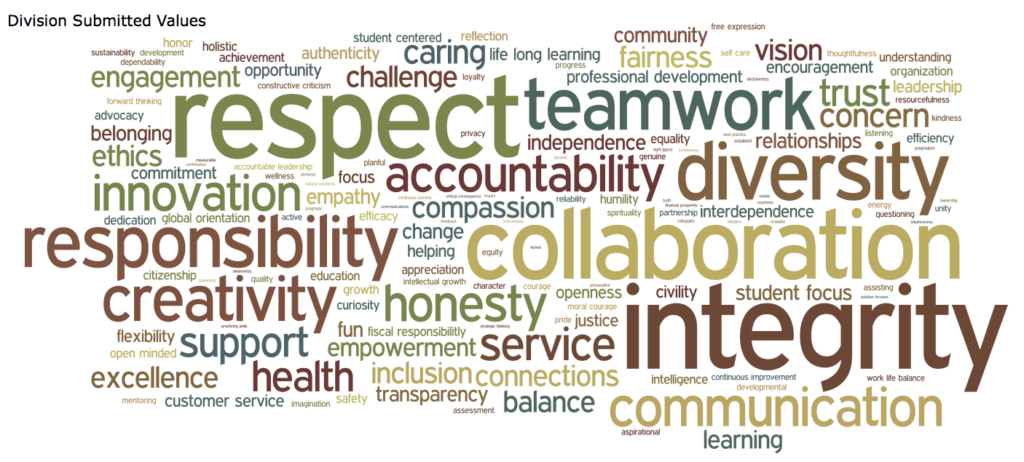In the famous French story, “The Little Prince,” a fox becomes the best friend of the young royal on a fictitious planet. When the fox must depart from the prince forever, he offers to tell him the world’s most wonderful secret if the prince meets certain conditions. The little prince agrees, does what is expected and then asks to be told the greatest secret.
“Only that which is invisible is essential,” the fox replies.
The most valuable things in life cannot be seen with the naked eye: love, friendship, hope, integrity, trust, compassion and values.

You can’t see values, touch them, taste them or smell them. Yet they are critical, intangible essentials that bring continuity and meaning to life.
And they are every bit as important for organizations as they are for individuals.
“It’s not hard to make decisions, once you know what your values are,” said Roy E. Disney. Roy Disney was the partner and co-founder, along with his younger brother Walt Disney, of Walt Disney Productions, since renamed The Walt Disney Company.
The Walt Disney Company is the epitome of a values-driven organization. While it may be overshadowed by its retail prowess, its primary product is happiness. Their “Disney courtesy” concept is based on four key values: safety, courtesy, show and efficiency. Every one of their performance standards is based on these encompassing beliefs.
Customer service is a lifestyle for all Disney employees. Employees are expected to think, walk, talk and breathe safety, courtesy, show and efficiency. This lifestyle creates happiness for their guests.
Defining your values is not just an academic exercise. “Clarifying your values is the essential first step toward a richer, fuller, more productive life,” said Carl Rogers, an American psychologist and a founder of the humanistic approach (or client-centered approach) to psychology. Rogers is widely considered to be one of the founding fathers of psychotherapy research and was widely honored for his pioneering research.
If you want to clarify your own values, ask yourself these questions:
- What do I believe in?
- In what guiding principles can I become constructively obsessed?
- What governs my life?
- What do I stand for?
- What puts meaning in my life?
- What qualities are important for my life to be complete?
Hey – I never said this was easy! This is not a quick and dirty exercise. Values are not a spur of the moment action. They are non-negotiable principles that guide our everyday lives. Your personal convictions, not those of others, determine how you live. You cannot separate personal value from personally held values.
Nor can you separate corporate value from corporate values. Customers and competitors should be able to see your values in action every day. Honesty, fairness, respect and trustworthiness are among values that should be front and center with every transaction.
The often-quoted Chinese philosopher Confucius, who lived in the fifth century B.C., wrote: “The rule of life is to be found within yourself. Ask yourself constantly, ‘What is the right thing to do?’ Beware of doing that which you are likely, sooner or later, to repent of having done.”
When you are in a position of having to repent, do it quickly and sincerely. That is another value that is essential to a good life: being able to admit mistakes and correcting them.
I will never forget when my good friend Lou Holtz was coaching Notre Dame in the 1989 Fiesta Bowl against West Virginia. His players learned a valuable lesson about their coach’s values that day, which resulted in a national championship.
Notre Dame was penalized on two consecutive plays for “taunting” the opposition. Despite knowing that his actions would bring another penalty, Holtz ran out on the field and asked the referee which of his players were doing the taunting, since this was before referees identified players by numbers. Then Holtz – with a national TV audience watching – grabbed the player and told him what was expected of him.
Holtz has always believed strongly in his players, but he demands that they follow his three simple values:
- Do what is right. Be on time, polite, honest, remain free from drugs, and if you have any questions, get out your Bible.
- Do everything to the best of your ability in the time allotted. Mediocrity is unacceptable when you are capable of doing better.
- Show people you care.
Mackay’s Moral: Decide what you will stand for or you won’t have a leg to stand on.

